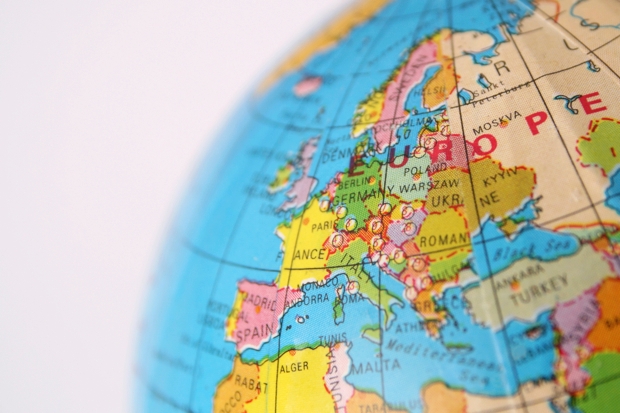Niall Ferguson wrote a piece recently comparing Europe’s situation to that of the Roman Empire during its late, decadent, sexual pervert days:
Here is how Edward Gibbon described the Goths’ sack of Rome in August 410AD: “ … In the hour of savage licence, when every passion was inflamed, and every restraint was removed … a cruel slaughter was made of the Romans; and … the streets of the city were filled with dead bodies … Whenever the Barbarians were provoked by opposition, they extended the promiscuous massacre to the feeble, the innocent, and the helpless…”. Now, does that not describe the scenes we witnessed in Paris on Friday night? True, Gibbon’s History of the Decline and Fall of the Roman Empire, published in six volumes between 1776 and 1788, represented Rome’s demise as a slow burn. Gibbon covered more than 1400 years of history. The causes he identified ranged from the personality disorders of individual emperors to the power of the Praetorian Guard and the rise of Sassanid Persia. Decline shaded into fall, with monotheism acting as a kind of imperial dry rot.
Europe has allowed its defences to crumble. As its wealth has grown, so its military prowess has shrunk, along with its self-belief. It has grown decadent in its malls and stadiums. At the same time, it has opened its gates to outsiders who have coveted its wealth without renouncing their ancestral faith.
I’m the most depressing person I know, but even I wouldn’t go as far as to say we’re in the fifth century yet, although the numbers of people illegally crossing into Europe – more than 200,000 in October alone – is alarming. I’d say we’re somewhere near the end of the second century AD; still at our peak, but well into the asabiyyah cycle – the journey from civilisation to decadence – and all the signs of rot are there: low birth rates, declining patriotism, a debased idea of citizenship, the ancestral religion on its way out, and people crossing the frontier in increasing numbers.
Conservatives love the fall of Rome because it’s such a sharp rebuke to our own decadent ways, but strangely enough one historical comparison rarely mentioned is climate change. Between the third and sixth centuries rising sea levels flooded some low-lying parts of northern Europe, including Angeln, Saxony and Jutland, the homelands of the barbarian tribes who invaded Britain. It’s not absurd to suggest it played some part in Rome’s fall, anymore than climate change might play a small role in conflict today. And in the greater scheme of things I’d say climate change is a far bigger threat to our civilisation than a modern-day invasion.
This week the world’s leaders were in Paris to discuss this very subject, which attracted scorn from many on the right. I should point out that my knowledge of the science involved is little enough as to be worthless, so I’m inclined to believe what the majority of scientists say on the subject. Who knows, maybe 97 per cent of scientists are wrong and it’s a hoax or exaggerated for political reasons, but not being an expert on the subject I defer to people who are.
But it’s strange that on the same day Europe’s leaders were getting together to see how they could control the climate, they were announcing a deal that would outsource Europe’s border controls to Turkey, because they are apparently incapable of controlling their own frontiers. I do find it odd that people who believe that governments can alter the climate so often also believe we can have no control over our borders, because free movement is some inevitable part of modernity.
I don’t know if governments can fix the climate – I sure hope so – but in any case fixing the border is clearly a great deal easier: tiny Israel manages to do it, despite being surrounded by enemies; Australia does it, despite being surrounded by coastline; East Asian countries all do it. In fact UN secretary-general Ban Ki-moon, who has lambasted Hungary for its treatment of refugees, is running for president of his home country, South Korea, which has precisely 400 non-Korean refugees out of a population of 48m. Presumably accepting thousands of Middle Easterners will be on his platform when he stands?
Because Europe’s leaders no longer have the will to control their borders, they are out-sourcing it to an Islamist-run country and in return handing over lots of money as well as the prospect of visa-free access to 80 million Turks and a ‘re-energised’ process for EU accession. I’m in favour of bringing Turkey into our fold in some way, but not until its standard of living is above a certain level, never with Erdogan in charge, and not while its getting more oppressive by the day. But almost as important is the principle: Europe could quite easily control its borders, but it seems to have lost the will to do so, which is disturbingly symptomatic of a civilisation in decline.







Comments